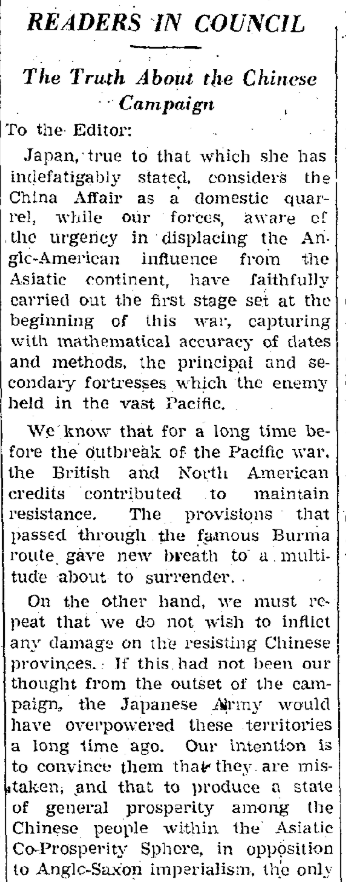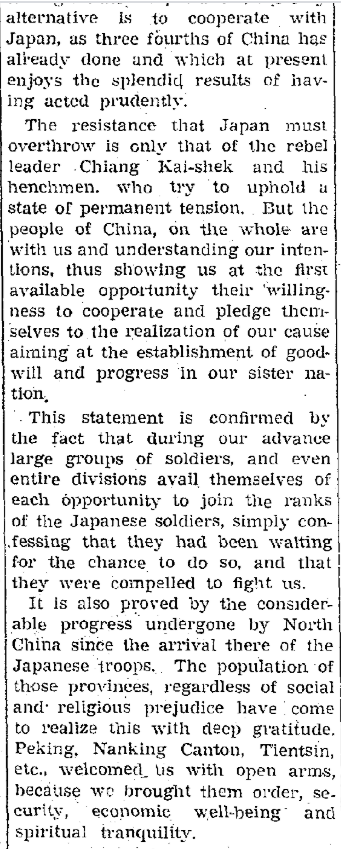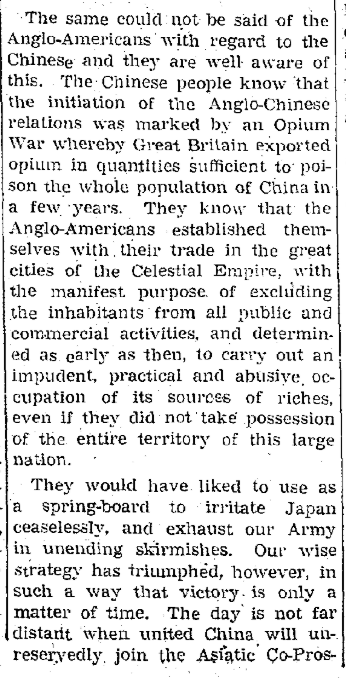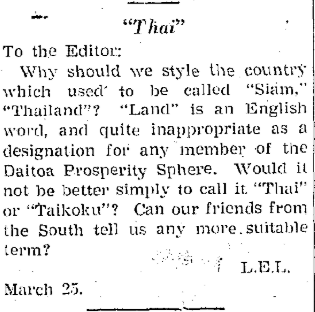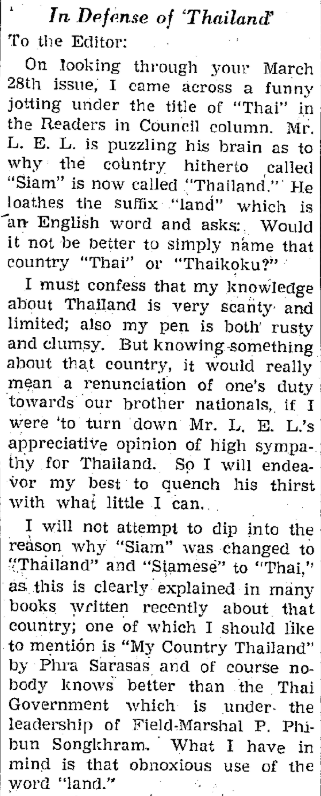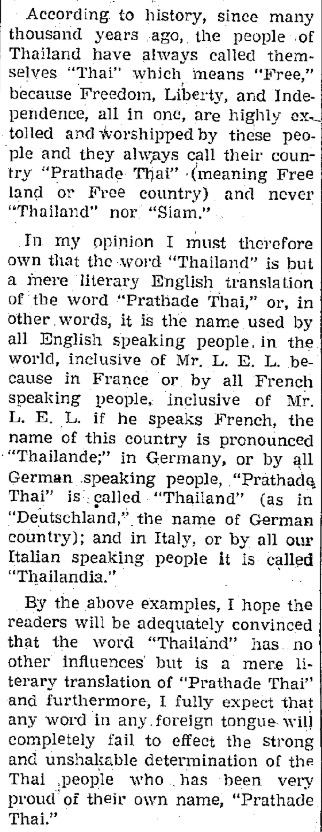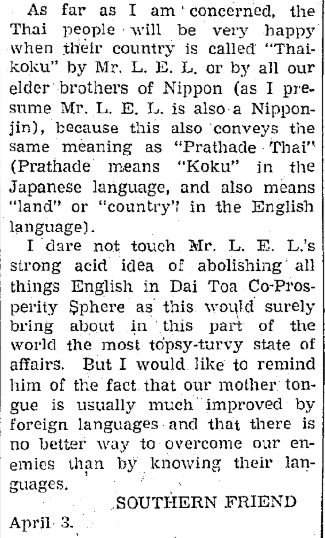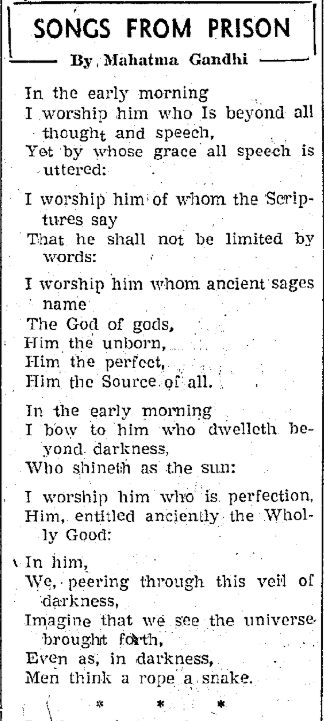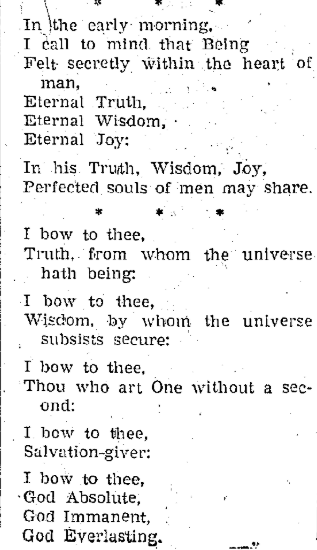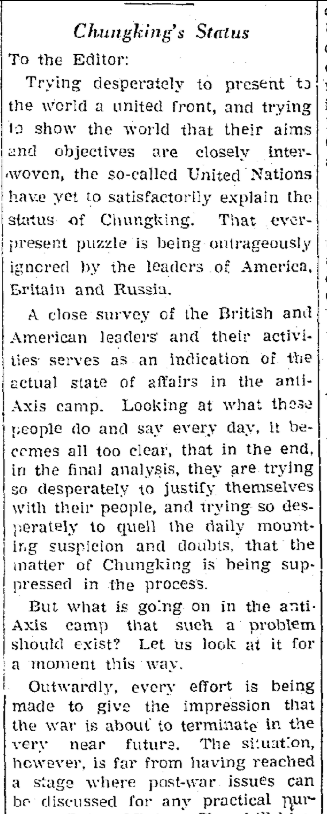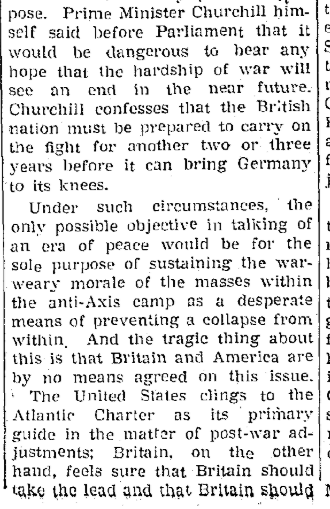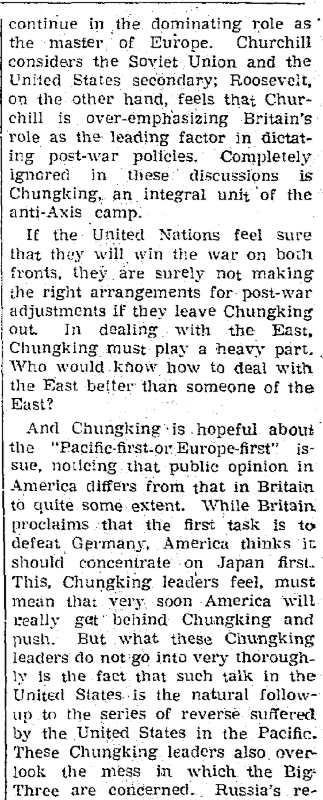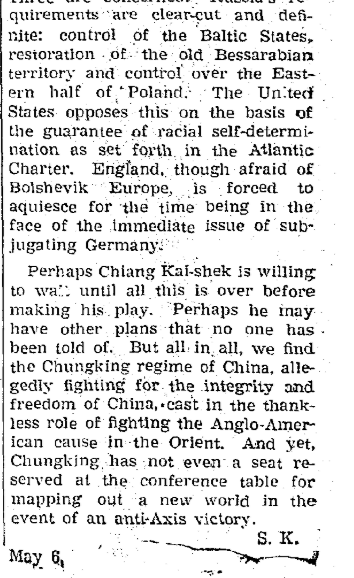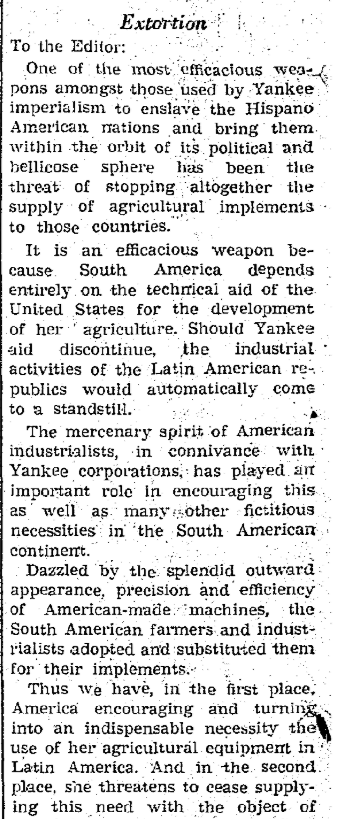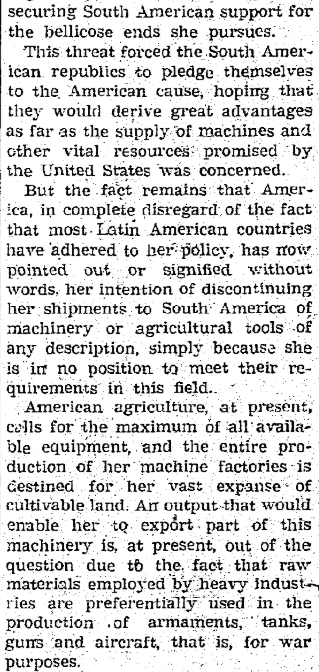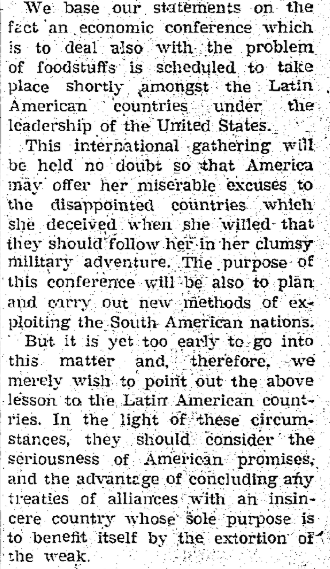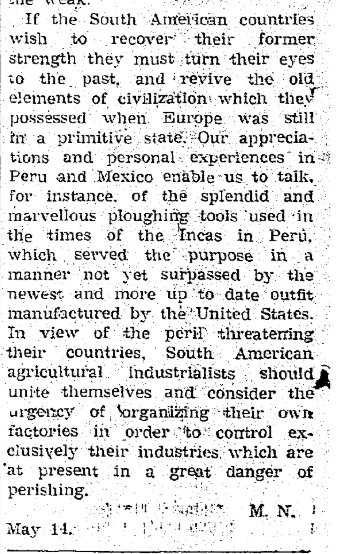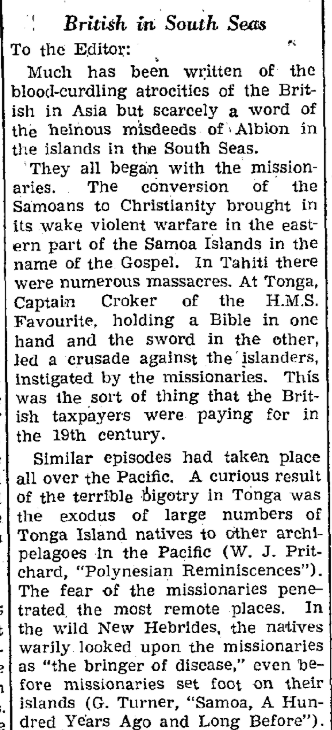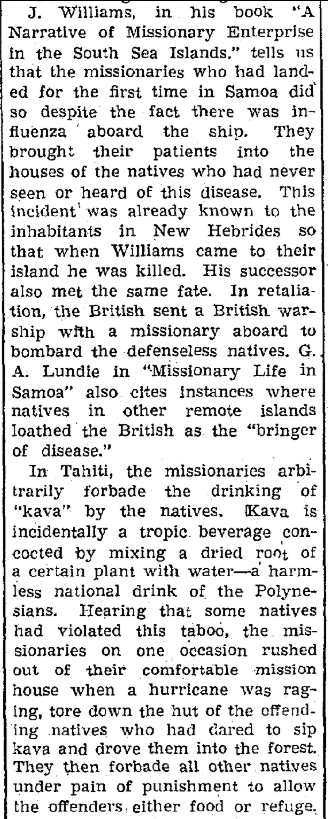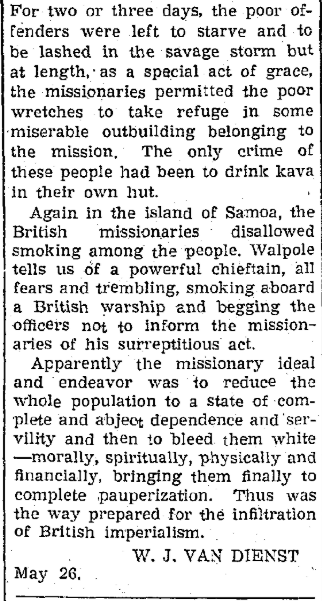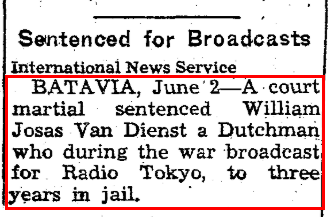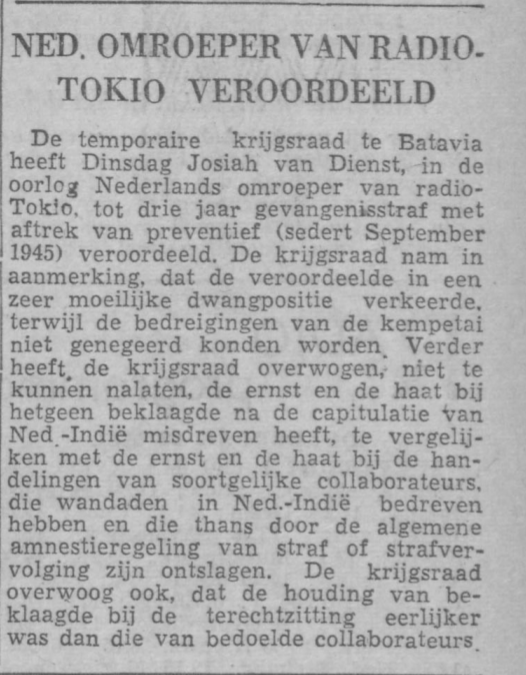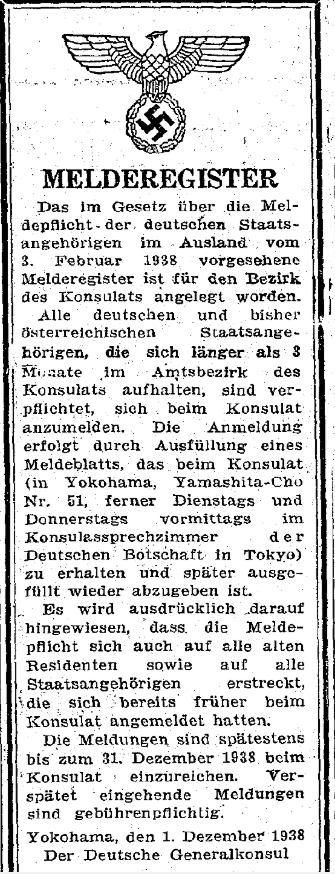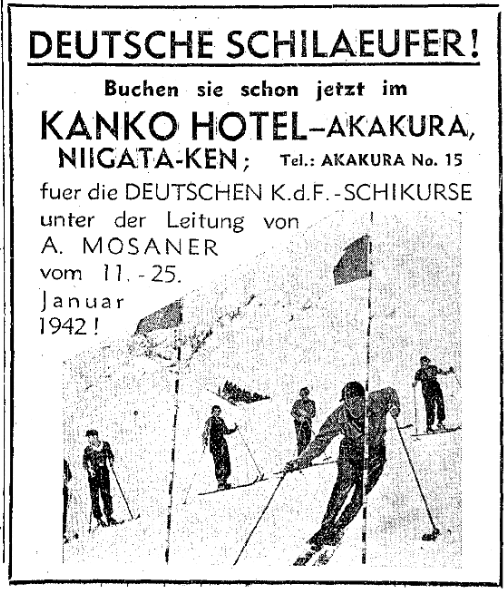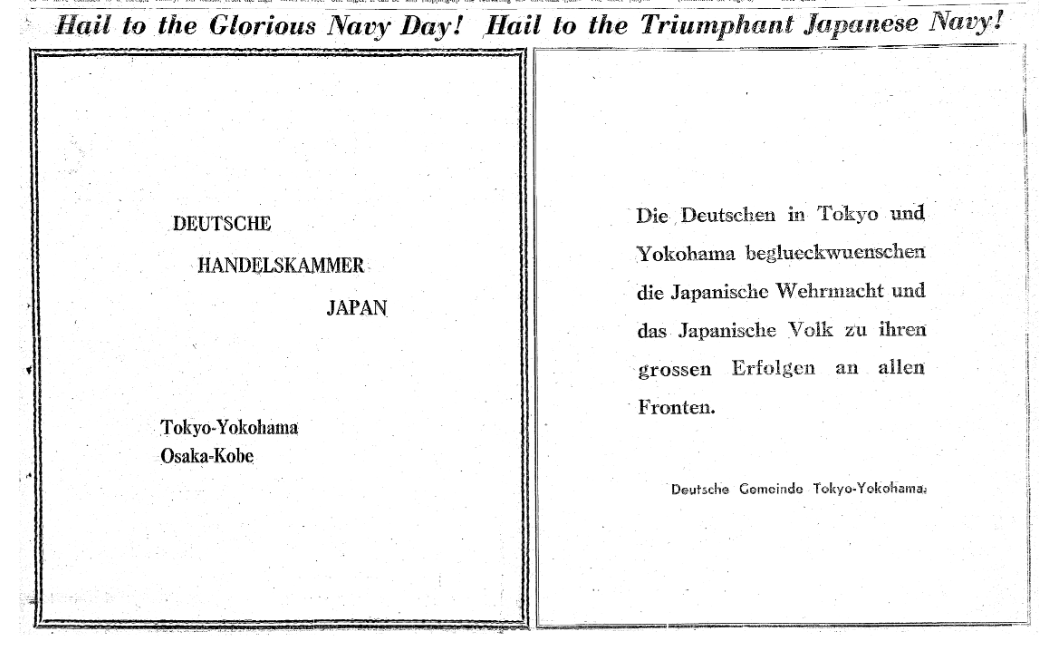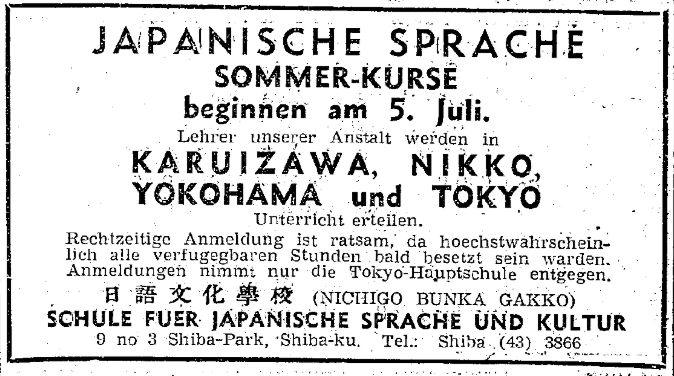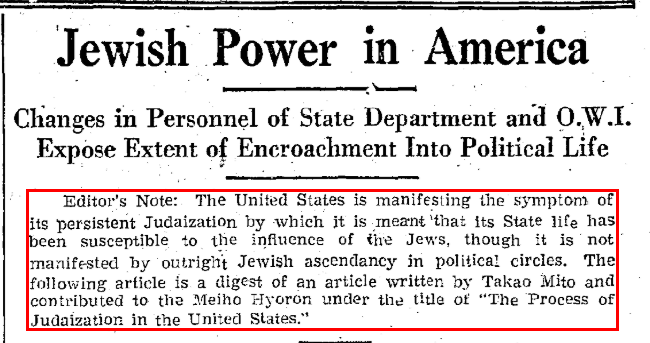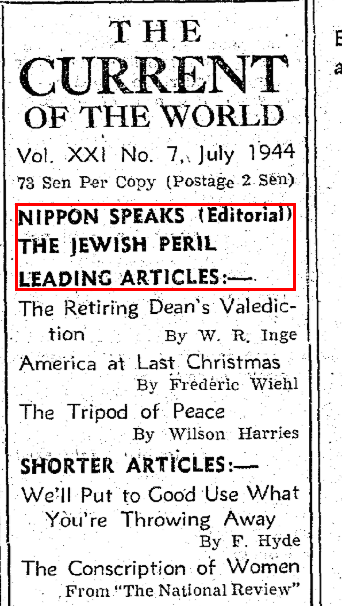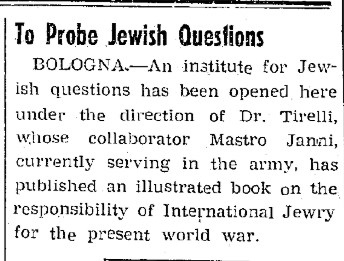Who were the people reading the Nippon Times (predecessor of @japantimes) during WWII?
・English-speaking foreigners in Japan? I doubt there were many of those at that time.
・Japanese people wanting to learn English? But there were gov. policies against the English language.
・English-speaking foreigners in Japan? I doubt there were many of those at that time.
・Japanese people wanting to learn English? But there were gov. policies against the English language.
Everytime I go through the Japan Times archives and look at results from those years, I can't help but think about this question. Who were they writing for?
This 1943 letter to the editor, signed "Y.B." appears to be written from the perspective of a Japanese person who was on the ground in China. It reads like a full-on propaganda piece, though, so I wonder if it's really a genuine letter from a reader.
This reader wondered whether Thailand should perhaps be given a different name, as "Land" is an English word.
L. E. L. gets a response from a different reader, who gives a lot of backstory on the meaning of "Thailand", and notes that "our mother tongue is usually much improved by foreign languages and that there is no better way to overcome the enemy than by knowing their languages".
Right next to that letter and loads of Japanese war-propaganda, there was this excerpt from Gandhi's "Songs From Prison".
A big proportion of letters to editor of Nippon Times were focused on criticizing the "anti-Axis" camp's treatment of the rest of the world. Are these letters propaganda, or were they written by people who were truly convinced that the Japanese war effort's end goals were noble?
This reader was very concerned about the "Yankee imperialism" in Latin America. Who wrote these letters?
This letter, about British atrocities, is the first one I've found that's actually signed with more than just some initials: "W. J. Van Dienst".
That's a Dutch/Flemish surname, but why would a European person send this letter *during WWII* to a Japanese newspaper?
That's a Dutch/Flemish surname, but why would a European person send this letter *during WWII* to a Japanese newspaper?
Wow this letter actually seems to be legit! I found an official Dutch pdf document that mentions a judicial process against W. J. van Dienst for having made radio broadcasts for Radio Tokyo during WWII.
http://www.gahetna.nl/archievenoverzicht/pdf/NL-HaNA_2.13.72.ead.pdf
http://www.gahetna.nl/archievenoverzicht/pdf/NL-HaNA_2.13.72.ead.pdf
Further confirmation that W. J. van Dienst's letter was definitely a genuine letter: on June 2, 1948 William Josas van Dienst was sentenced for his participation in Radio Tokyo.
Does this mean all of the other letters were likely also genuine? Were they from similar people?
Does this mean all of the other letters were likely also genuine? Were they from similar people?
Shifting my attention to this individual:
Interestingly, this 1948 article in the Nieuwe Schiedamse Courant notes that one reason he only got 3 years of jail, was that he was supposedly under threat from the Japanese military police. https://schiedam.courant.nu/issue/NSC/1948-05-26/edition/null/page/1?query=
Interestingly, this 1948 article in the Nieuwe Schiedamse Courant notes that one reason he only got 3 years of jail, was that he was supposedly under threat from the Japanese military police. https://schiedam.courant.nu/issue/NSC/1948-05-26/edition/null/page/1?query=
Van Dienst, whose full name is written as "Wilhelm Josias Van Dienst" in this particular document, was apparently a Buddhist priest who was "very anti-European". He seems to have been convinced that Japan was really going to free the rest of the world.
http://etheses.whiterose.ac.uk/14444/
http://etheses.whiterose.ac.uk/14444/
Seeing the way the Western powers treated the rest of the world, I can easily imagine how people with noble intentions could end up getting swept up into the Japanese war machine, as long as they stayed far removed from the actual atrocities Japan itself was committing.
I found these ads and messages in the Japan Times & Mail/Nippon Times, so it seems like the readership at the time might have consisted also of Germans living in Japan, to some degree.

 Read on Twitter
Read on Twitter